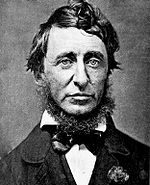Rhythm
I want to talk to you about a topic on which I am no expert–rhythm. Even though I was good at kickball, when it came to rehearsing on the blacktop for the May Day festival dance in sixth grade, there was one move I just couldn’t get. Skipping. All the other students seemed to skip without thinking, and come to think about it, looking back now, maybe I was thinking too hard.
The more I thought about how to do it, the harder it got. I thought I saw what others were doing, but when I tried to do it, I was stymied. My foot went up, yes, but I couldn’t get the next part. I stalled in mid-air, and then it was time to shift to the other foot. Panic! What came next? My legs must have looked like a wayward pogo stick, out-of-sync shanks. What was missing? I just could not get it. The answer was: rhythm.
Why is learning so hard for some students? I would submit it’s because some students just can’t get into a rhythm that works for them. The problem is that everybody has different rhythms. Good teachers, I believe, find a rhythm that students can follow and make their own. The students learn how to get into a pattern, a rhythm if you will, that feels good for them. For students that come from chaotic households, finding a predictable rhythm can provide the real security and calm that creates a context for learning.
Sitting in a cramped desk, as you might imagine, for some learners, just goes against their natural rhythms. At-risk students, learning-disabled students, kinesthetic or tactile learners, and many adult learners require innovative methods that allow learners to feel comfortable in their own bodies–safe, settling into a pattern that works for them. Once a learner finds the right rhythm, I believe, he or she can develop the flow that makes learning fun.
One point of getting into a rhythm is so your body can go on auto-pilot, so you don’t have to think, right? Your body is free to soar, like Michael Jordan on a roll. You glide.
Well, some of us, anyway.
The learner does not have to think so much about what he or she is doing. They just do it. It’s in their muscles. The learner is “in the zone,” again, like Michael Jordan.
Once, I learned the rhythm of skipping, the little two-step, it was like riding a bike; I didn’t have to second-guess myself. I just skipped. As educators and tutors, we need to look for ways to help students find their own natural rhythms.
-Chris Mathews
Next Time:
Using Word Families with Rap or Hip-hop is one way to help students who have trouble with vowel sounds to figure out words.
A Lesson Plan for using word families and Hip-hop to help learners learn and remember difficult word endings like –TION and –SION.



